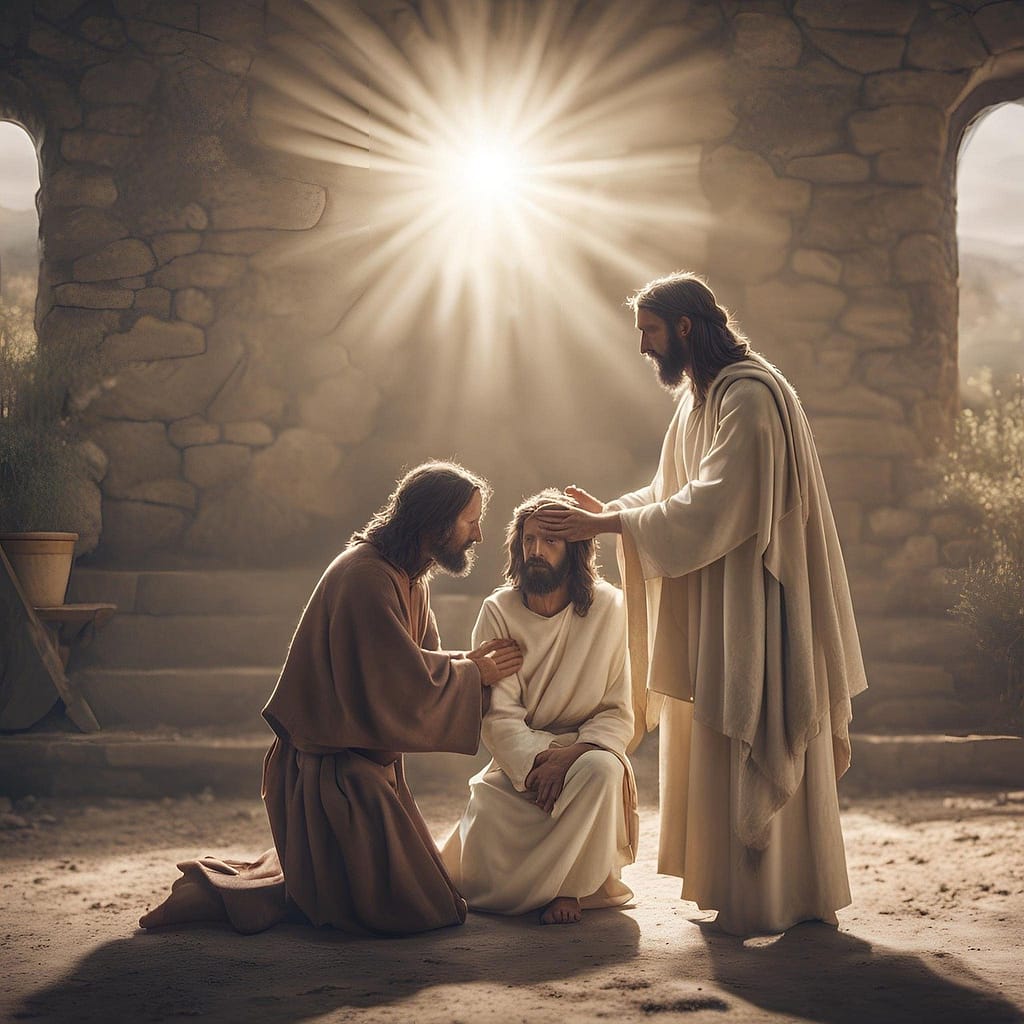Teachings about ease, comfort, and prosperity frequently overshadow the sacrifices of discipleship in today’s church.
The Bible paints a clear and strict picture of what it means to follow Jesus. Examining passages such as Luke 14:25–33 and Matthew 10:34–36, this essay reveals the intricate and deep requirements of discipleship.
Luke 14:25–33: The Challenge of True Discipleship
In Luke 14:25–33, Jesus addresses the crowds following Him and lays out the rigorous requirements for being His disciple:
“Large crowds were traveling with Jesus, and turning to them; he said: ‘If anyone comes to me and does not hate father and mother, wife and children, brothers and sisters—yes, even their own life—such a person cannot be my disciple. And whoever does not carry their cross and follow me cannot be my disciple. Suppose one of you wants to build a tower. Won’t you first estimate the cost to see if you have enough money to complete it? For if you lay the foundation and cannot finish it, everyone who sees it will ridicule you, saying, ‘This person began to build and wasn’t able to finish.’ Or suppose a king is about to go to war against another king. Won’t he first sit down and consider whether he can, with ten thousand men, oppose the one coming against him with twenty thousand? If he cannot do so, he will send a delegation while the other is still a long way off and will ask for peace terms. In the same way, those of you who do not give up everything you have cannot be my disciples.’”
Jesus uses strong language here, urging His followers to “hate” their closest family members and even their own lives. This hyperbolic language underscores the level of commitment required to follow Him. The focus is prioritizing Jesus above all else, including the most cherished relationships, rather than literal hatred. The metaphor of carrying one’s cross signifies a willingness to endure suffering, shame, and even death for the sake of Christ.
The parables of the builder and the king emphasize the importance of counting the cost before committing to discipleship. Jesus clarifies that following Him is a challenging decision.
Matthew 10:34–36: Division as a Cost of Discipleship
In Matthew 10:34–36, Jesus presents another stark reality of discipleship:
“Do not suppose I have come to bring peace to the earth. I did not come to bring peace but a sword. For I have come to turn a man against his father, a daughter against her mother, a daughter-in-law against her mother-in-law—a man’s enemies will be the members of his household.’”
Here, Jesus warns that His coming will result in division, even within families. The “sword” symbolizes conflict and division, indicating that everyone will not accept the gospel and will cause rifts among close relationships. This passage highlights the isolating and contentious nature of true discipleship, where loyalty to Christ may lead to estrangement from loved ones.
Additional Scriptures on the Cost of Discipleship
The theme of the high cost of following Jesus is pervasive throughout the New Testament. Here are some additional scriptures that further elucidate this demanding path:
- Matthew 16:24–26: “Then Jesus said to his disciples, ‘Whoever wants to be my disciple must deny themselves and take up their cross and follow me. Whoever wants to save their life will lose it, but whoever loses their life for me will find it. What good will it be for someone to gain the whole world yet forfeit their soul? Or what can anyone give in exchange for their soul?’”
- Submitting to Jesus’s lordship daily means denying oneself and putting His will above all else.
- Mark 10:21–22: “Jesus looked at him and loved him. ‘One thing you lack,’ he said. ‘Go, sell everything you have and give to the poor; you will have treasure in heaven. Then come, follow me.’ At this, the man’s face fell. He went away sad because he had great wealth.”
- The story of the rich young ruler illustrates the difficulty of letting go of material possessions and wealth, which can be a significant barrier to wholehearted discipleship.
- John 15:18–20: “If the world hates you, remember that it hated me first. If you belonged to the world, it would love you as its own. As it is, you do not belong to the world, but I have chosen you out of the world. That is why the world hates you. Remember what I told you: ‘A servant is not greater than his master.’ If they persecuted me, they will persecute you also. If they obeyed my teaching, they will obey yours also.”
- Jesus prepares His disciples for persecution and rejection, reminding them that being His follower means facing the same opposition He encountered.
- Philippians 3:7-8: “But whatever were gains to me I now consider loss for the sake of Christ. Moreover, I consider everything a loss because of the surpassing worth of knowing Christ Jesus, my Lord, for whose sake I have lost all things. I consider them garbage, that I may gain Christ.”
- The Apostle Paul expresses his total abandonment of worldly achievements and possessions for the sake of knowing and gaining Christ, demonstrating the profound personal cost of discipleship.
Modern Lukewarmness: A Departure from Biblical Discipleship
The contemporary church often struggles with lukewarmness, spiritual indifference, and complacency, which Jesus warns against in Revelation 3:15–16.
“I know your deeds, that you are neither cold nor hot. I wish you were either one or the other! So, because you are lukewarm—neither hot nor cold—I am about to spit you out of my mouth.”
This lukewarmness can be attributed, in part, to a diluted gospel message that minimizes the cost of following Jesus. Instead of emphasizing self-denial, sacrifice, and the potential for suffering, some modern teachings focus on prosperity, personal fulfillment, and comfort. Such an outcome can cause a surface-level faith that causes further depth and resilience.
To counter this trend, the church must return to biblical teachings on discipleship. Remembering that following Jesus entails a significant and frequently agonizing metamorphosis causes complete dedication, unwavering loyalty, and a readiness to endure struggle and persecution.
Conclusion
The cost of discipleship is a challenging reality, as outlined in scriptures such as Luke 14:25–33 and Matthew 10:34–36. It involves prioritizing Jesus, enduring hardships, and remaining resilient in difficult times. These are the expectations for his followers. By embracing these scriptural ideas, the church can transcend passivity and develop a dynamic, genuine faith that reflects the radical character of following Christ.



